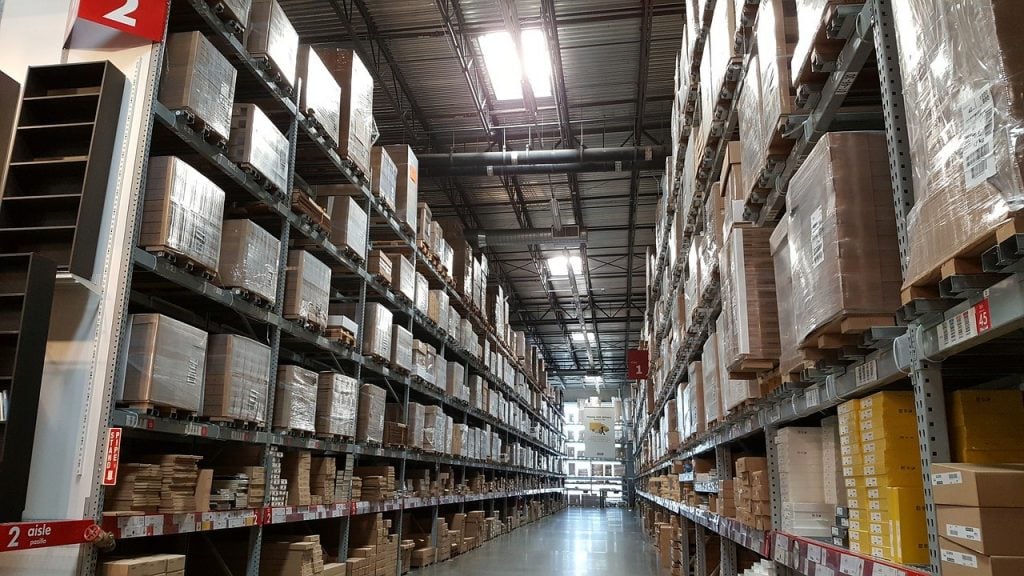Do you doubt the accuracy of your inventory? Are you concerned with changing requirements of supply chain or regulations? These common issues can be addressed by having a warehouse management system, as it creates a warehouse that you can easily trust.
Warehouse management systems are all different. The programs created decades ago were very rigid and could only be used for a few industries. In today’s world, the story is different – the systems are configured to serve a broader purpose.
Adequate warehouse management is not just about data and information. It is about creating a ground for customized and robust solutions for the flow of work.
It works together with entities beyond the walls of your warehouse, such as the IT department and engineering, to create better transparency.
To upgrade your warehouse management system means more than pressing a button to know the materials in the store – it builds the processes involved in bringing the goods in.
Today, several integration-friendly options are capable of improving operations in the modern business world. Upgrading your warehouse management system can improve services for these reasons:
1. Lower expenses of the action
A warehouse management system that is well-designed cuts on operational costs in many ways. This system determines the best use of both space and labor, which eliminates waste.
Upgraded systems have floor simulators in the warehouse, making it possible for business owners to create proper floor plans within their working environment.
The simulators make it possible to put shelves, pallets, and other equipment needed to accommodate your products.
These systems also support both LIFO and FIFO principles, making it possible for warehouse managers to have flexibility regarding how to run the warehouse. FIFO makes sure that items that are perishable are selected first.
While LIFO ensures shelves are kept against the walls to have more space. Because of this versatility, managers can configure warehouses to operate at maximum efficiency, thereby saving them time and money.
2. More visible inventory
One of the essential parts of warehouse management systems is proper visibility. Improved visibility dramatically improves operations. The software provides sufficient data by using serial numbers, barcodes, and RFID tags.
These methods make it possible for users to have documentation on every item that enters the warehouse, new movements on the floor of the warehouse, and its movement as it gets transported from one place to the other.
This visibility is essential to make forecasts on demand, which can give an insight into the products that customers are most popular with during particular times of the year.
Such knowledge will assist the management in determining the products to better invest in and which ones are losing market value.
More traceability is particularly crucial in the scenario of a recall. The serial numbers found on a product makes it possible for them to be tracked to their original points to determine the faulty batch.
3. Better customer service and tracking
The warehouse is an essential aspect of the buying experience of customers. Ensure that products ordered are in stock and customers get what they paid for is crucial in giving excellent customer service. Warehouse management systems improve the accuracy of selecting orders at the first trial.
It makes it possible to organize and track shipments through an automated system. Assignments of the workforce, shipment routes, and damaged goods are easily monitored and managed.
Efficient customer service and tracking ensures accuracy and makes customers happy.
4. Better security
An upgraded warehouse management system makes it a requirement for workers to make use of their accounts when filling in transactions.
By doing this, it creates a trail that connects specific workers to particular transactions, which makes better accountability and lowers the risk of theft. It also makes it possible for business owners to create new training opportunities to improve the practices of employees.
Additional benefits include the prevention of unauthorized access to some reports. Users will only be able to view enough information regarding their duties, so you wouldn’t have to worry about company secrets falling into the hands of your competitors.
5. Quicker delivery of products
In the competitive environment today, more clients expect their products to be shipped quickly. A study conducted recently discovered that 45 percent of clients said that quick delivery means that the goods get to them within 2 to 4 days.
An ungraded warehouse management system such as one provided by JD Edwards Managed Services can quickly help business owners to ship out goods fast since it has the ability to link order fulfillment, shipping and carrier systems.
Author Bio
Chris Giarratana is the co-founder of StrategyBeam, an Orlando marketing agency, where he works with small businesses and nonprofits to achieve their goals. He helps drive conversions and boost sales through SEO marketing, Google AdWords management, and copywriting services.
